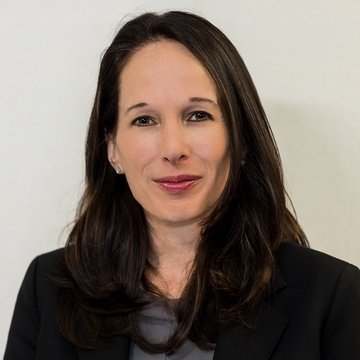Amy Zegart is the Morris Arnold and Nona Jean Cox senior fellow at the Hoover Institution, professor of political science by courtesy at Stanford University, and a contributing writer at The Atlantic. She is also a senior fellow at Stanford’s Institute for Human-Centered Artificial Intelligence (HAI) and the Freeman Spogli Institute for International Studies (FSI). Zegart is an internationally recognized expert in U.S. intelligence, emerging technologies, and global political risk management. In addition to her research and teaching, Zegart led Stanford’s Center for International Security and Cooperation (CISAC), founded the Stanford Cyber Policy Program, and served as chief academic officer of the Hoover Institution. At Hoover, Zegart currently serves as the Director of the Robert and Marion Oster National Security Affairs fellows program and as co-chair of the Technology Policy Accelerator, which produces the annual Stanford Emerging Technology Review. Before coming to Stanford, she was professor of public policy at the University of California, Los Angeles, and a McKinsey & Company consultant. Zegart has served on the National Security Council staff and as a presidential campaign foreign policy advisor. She frequently advises senior U.S. officials on intelligence and emerging technology matters. She is the author of five books, including the bestseller Spies, Lies, and Algorithms: The History and Future of American Intelligence; Political Risk: How Businesses and Organizations Can Anticipate Global Insecurity, co-authored with Condoleezza Rice; and Spying Blind: The CIA, the FBI, and the Origins of 9/11. Zegart holds a bachelor’s degree in East Asian studies from Harvard University and a doctorate in political science from Stanford University. She serves on the boards of Kratos Defense & Security Solutions and the Capital Group. Zegart is based in Stanford, CA.
- China
- RealEcon
-
Topics
FeaturedInternational efforts, such as the Paris Agreement, aim to reduce greenhouse gas emissions. But experts say countries aren’t doing enough to limit dangerous global warming.
-
Regions
FeaturedIntroduction Throughout its decades of independence, Myanmar has struggled with military rule, civil war, poor governance, and widespread poverty. A military coup in February 2021 dashed hopes for…
Backgrounder by Lindsay Maizland January 31, 2022
-
Explainers
FeaturedDuring the 2020 presidential campaign, Joe Biden promised that his administration would make a “historic effort” to reduce long-running racial inequities in health. Tobacco use—the leading cause of p…
Interactive by Olivia Angelino, Thomas J. Bollyky, Elle Ruggiero and Isabella Turilli February 1, 2023 Global Health Program
-
Research & Analysis
FeaturedAmazon Best Book of September 2024 New York Times’ Nonfiction Book to Read Fall 2024 In this “monumental and impressive” biography, Max Boot, the distinguished political columnist, illuminates…
Book by Max Boot September 10, 2024
-
Communities
Featured
Webinar with Carolyn Kissane and Irina A. Faskianos April 12, 2023
-
Events
FeaturedPlease join us for two panels to discuss the agenda and likely outcomes of the North Atlantic Treaty Organization (NATO) Summit, taking place in Washington DC from July 9 to 11. SESSION I: A Conversation With NSC Director for Europe Michael Carpenter 12:30 p.m.—1:00 p.m. (EDT) In-Person Lunch Reception 1:00 p.m.—1:30 p.m. (EDT) Hybrid Meeting SESSION II: NATO’s Future: Enlarged and More European? 1:30 p.m.—1:45 p.m. (EDT) In-Person Coffee Break 1:45 p.m.—2:45 p.m. (EDT) Hybrid Meeting
Virtual Event with Emma M. Ashford, Michael R. Carpenter, Camille Grand, Thomas Wright, Liana Fix and Charles A. Kupchan June 25, 2024 Europe Program
- Related Sites
- More
 Online Store
Online Store

